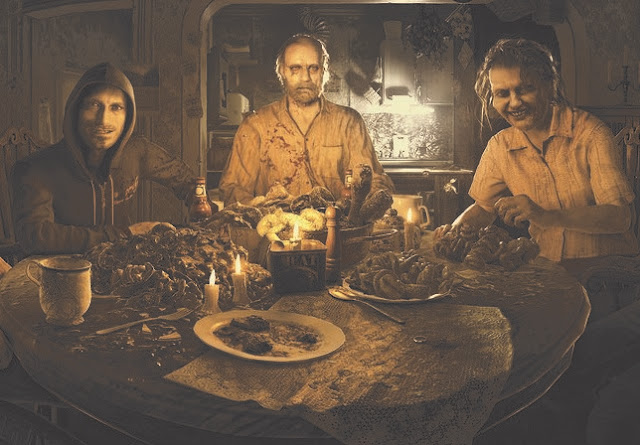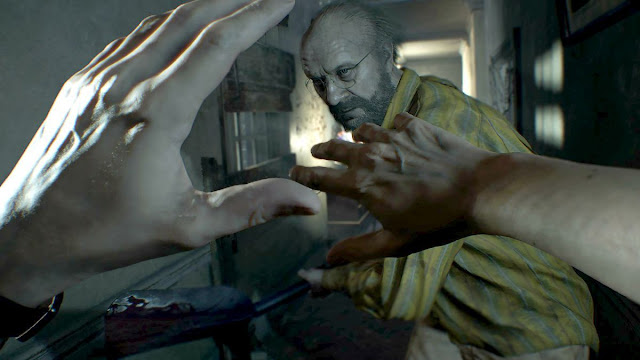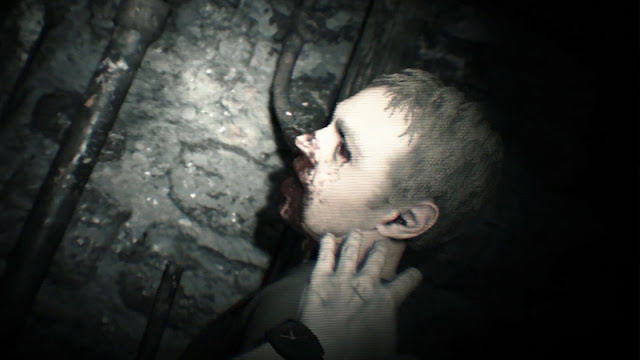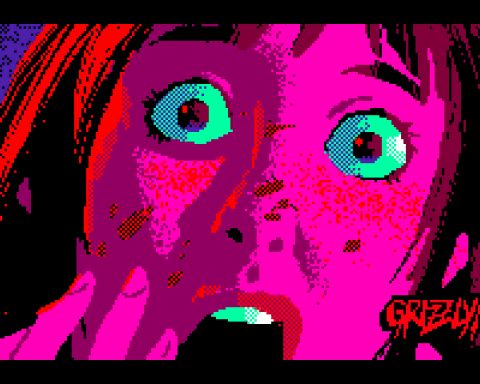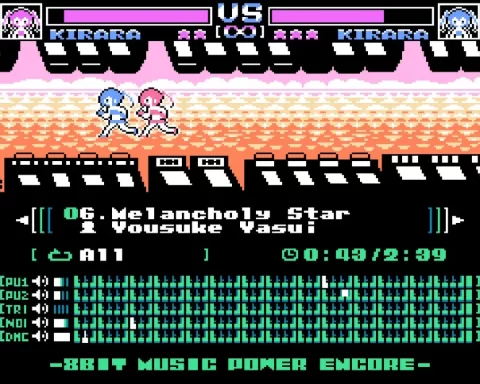Review by Matt S.
Like the zombies of old, the Resident Evil series has lost its soul in recent years. The problem with Resident Evil 7: Biohazard is that it is such a vapid, self-interested title, and so obsessed with being earnest in its desire to create horror, that it really struggles to be anything but a derivative mess of nonsense; nonsense that I didn’t really find that interesting, and it’s certainly not the kind of thing that I look for in the horror genre.
Related reading: Probably the most effective horror game on the PlayStation 4, Alien: Isolation is incredible, and very worthwhile. Nick’s full review.
The Resident Evil series can be broken down into two rough “eras.” The first “era” covers everything up until Resident Evil 4. These games were, almost universally, glorious homages to B-grade horror, jump scares, and shambling zombies. They were masterful at this, both in terms of the goofy sense of humour (“Jill sandwiches” et al) and a fundamental understanding of how silly the whole experience was. That’s not to say they weren’t shocking in places, thanks to those jump scares and extreme imagery, and they could certainly be tense and difficult, thanks to those ‘tank controls’ that caused characters to lumber around and turn as slowly as the zombies. Capping it all off, the fixed camera angles meant that you never really got to see everything that you wanted to, and what was in the proverbial shadows was cause for apprehension. These games were so great because were a perfect emulation of going along to a B-grade 70s or 80s horror, and half laughing at the latest antics of Jason Voorhees and Freddy Krueger, even as you inadvertently jumped at the loud, discordant music that would pierce your eardrums as some teenager or another was impaled.
Then Resident Evil 4 came in, and everything changed. From Resident Evil 4 through to 6, and the un-numbered games released in-between (Revelations, for example), the series took a turn towards more pure-play action. Enemies got faster. You’d be running around more. Ammunition became more plentiful. And the horror became more of a background setting than the focus. This second chapter of the series has both hits and misses, but when it works it’s very “horror blockbuster” in tone. It’s palatable to a much larger audience than pure play horror could ever be, and though you could argue that the series lost its self-aware heritage, you could just as equally argue that other changes, such as dropping the tank controls, was the best thing the series could have done to maintain its relevance.
Resident Evil 7 starts a whole new chapter for the series, and right upfront I’m going to say this: this game is not self-aware, but boy does it try to nail the horror. In fact, the best moments are early on, before the physical dangers become apparent. You’ll find yourself dumped in the middle of swampland, looking at a decrepit building that is an exact replica of the kind of building that stars in the likes of Wrong Turn or Texas Chainsaw Massacre films. It’s a very American horror, playing on the traditional fears of the Deep South: the bayous, the roads to nowhere ending in hell on earth, the isolation and the fear of hillbillies.
It’s the kind of building that you wouldn’t ever want to go into, but in Resident Evil 7, in you go. The plot hook to get you in there is ridiculous; your wife goes missing for three years, but then delivers you a note with about two sentences on it telling you to come to this address, and so, without even questioning what’s going on, off you chase after her. There’s no humour about this; we’re meant to believe that you really do love your wife enough to chase after her and enter a diseased building to try and find her without even attempting to gather some support for the expedition beforehand, but you’ll go along with the weak premise it because it’s so damned atmospheric.
Because the game plays in first person – a first for the series – “you” does feel like you, especially when played in virtual reality, and the impact of the game is severe at times. Again, before I was really aware of the threats I would be facing, just making my way around the house to find an entrance was tense stuff. I could feel the humidity, and, once in, I felt physically sick when I lifted the lid off a pot to find the most hideous stew, cockroaches and all, in it. My brain could almost smell it. Resident Evil 7’s aesthetics are second to none; this is the highest-budget horror game ever produced, and from start to finish it feels like the artists did excellent work with their budgets.
But as the game wore on, I started to lose that initial connection I had with the game. I was genuinely frightened and intimidated at first, but as I witnessed scripted moment after scripted moment, I realised just how artificial the whole experience is. It starts to touch on other genres; everything from classical zombie horror through to found footage horror. But in each case it’s everything that we’ve already seen before, and the game feels like the writers were sat in front of a pile of horror DVDs and told to string together the scariest bits of each to create the overall game. The narrative direction starts to lose cohesiveness, perhaps because it feels like it’s truly running out of ideas, and the predictability of it all detracts from the atmosphere. Without the self-referential humour, too, the game is far too earnest to be able to afford to lose that atmosphere.
The VR component suffers even more from the artificiality of the experience letting the game down. The suspension of disbelief is ruined over and over again, because nothing actually happens to you (as in, the real you). Your character will have a knife shoved right through the hand, and in VR it looks realistic enough; if I’m stabbed through the hand in real life I imagine that the way the point protrudes through on the other side would look just like that, even if the blood the attack produced was perhaps a little excessive. But I also imagine that I would feel incredible pain, and here’s a lesson for game developers working with VR: if “visceral” is what you’re aiming for, then that disconnect between what the players see with the goggles on and what they feel is a significant hurdle. I suspect that horror on VR will be better off targeting a more psychological horror, like what I experienced with Here They Lie.
Of course, the game plays well, and I suspect for many this will be what’s important. Here, in the gameplay itself, Capcom has discovered some of what made the earlier Resident Evil titles so wonderful. Levels are puzzles unto themselves, requiring players to scour the area for items, backtracking to and fro in order to unlock the path forwards. There’s a far lighter emphasis on action, too, than in the nonsense like Resident Evil 5 and 6. Resident Evil 7 is so heavily scripted that I wouldn’t rightfully call it a survival horror game, but it works hard to give players the impression that they’ll always be under-resourced for the threats they’re going to come up against.
Related reading: The best horror game in some years is on the Wii U, of all consoles. Project Zero: Maiden of Blackwater is an incredible example of the genre. Matt’s review.
At the same time, unlike genuine survival games, like Amnesia or Outlast, where players have next to no way of fighting back and so need to play a deadly game of hide-and-seek with the creatures in order to survive, Resident Evil 7 gives players the tools they need to push forward through adversity, and that empowerment makes the game more accessible. It needs to be, because this is a major blockbuster game, not some indie title that can get by with a tiny audience of extreme horror diehards, but here too there’s a disconnect between what the game so badly wants to be, and what it ends up being. Real horror is about disempowerment, and this game forgets that completely. There’s the potential in Resident Evil 7 to be utterly terrifying, but too often it seems like the development team restrained themselves, going for far less horrific imagery than they could have, in favour of generic gore and extreme violence; the stuff that focus groups will tell you is far more commercial.
Resident Evil 7: Biohazard is a game that really struggles to find the new voice that Resident Evil so needs as a franchise. It’s incredibly well designed and executed, and you’re not going to find a game that does VR better than this one. But it’s a confused game, sending out all kinds of mixed messages that suggest the development team – and especially the writers – have a better idea of what makes for horrific imagery than they do of horror as a storytelling genre. As a real fan of horror, and someone who has studied it for years, this is what doesn’t sit so well with me.
– Matt S.
Editor-in-Chief
Find me on Twitter: @digitallydownld

